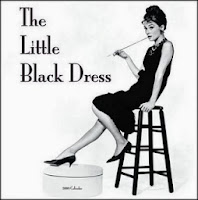 |
| It's Katawards day! |
So here we go:
Most important copyright decision

This may be a difficult one to choose, as there have been plenty of intriguing, appalling or just plainly important judgments in the past few months. However, copyright enthusiasts may agree that the ruling of the year has been that of Judge Denny Chin in the much-awaited Google Books Library Project case (here and here). Although this epic saga will soon have a new chapter written in appeal, the decision of the US District Court for the Southern District of New York was not just an important victory for Google, but also a further step into the construction of the peculiar - and increasingly attractive - US fair use doctrine. Above all, the decision is likely to be used to orientate copyright reform debates. There the file "How to review systems of exceptions and limitations" is classed as top priority. Should we all embrace fair use? This is a Hamlet dilemma, although (it would seem) not for Aussies: see here.
Most important piece of legislation
From this point of view, 2013 has been mainly a year of discussion and transition, at least in the EU and US. In the former especially, quite a few policy documents have been released, eg the Lescure Report in France (here), the Modernising Copyright Report in Ireland (here, here, here), and the EU has just launched an ambitious Public Consultation on the review of EU copyright (here and here).
It may be because of the geographic origin of this Kat, but probably the most important piece of legislation is not really a law, but rather a regulation: the Regulation on Online Copyright Enforcement by AGCOM (Italian Communication Authority, on which see here and here, and unofficial English translation here). It is important because for the first time in Italy an administrative authority (as is AGCOM) has vested itself with powers (to grant injunctions) which traditionally have fallen within the competence of courts. Overall, the Italian experiment is not only likely to be looked at with either interest or fear by other Member States, but also inform debate around forthcoming review of the InfoSoc and Enforcement Directives.
 |
| Li(c)king for sure, but also communicating? |
To this Kat, there is little doubt: it is hyperlinking. More specifically: is a link a communication to the public?
This is a question which has been haunting EU copyright minds for a while, and has elicited a bunch of references to the Court of Justice of the European Union (CJEU) - these being Case C-466/12 Svensson (here), Case C-279/13 C More Entertainment (here), and C-348/13 BestWater (here, but this case has been stayed pending the decision in Svensson) -, independent opinions by the European Copyright Society (on which see here and here), and ALAI (on which see here), and contrasting approaches at the national level (eg here).
In the coming months, the CJEU will deliver its judgment in Svensson, and will do so without asking for the opinion of an Advocate General first. This is becase the CJEU thinks that response to this question is fairly straightforward. Is it?
Most important policy issue for 2014
 |
| Subtitle: Copyright exceptions and limitations |
It is not a new issue at all, but it is likely that 2014 will be the year of copyright exceptions and limitations. Australia will decide whether to go for fair use, the UK will update its system of exceptions, Irish proposals regarding the possibility (and feasibility) of introducing innovation and fair use exceptions at the national level will be further discussed, the EU will finish consulting on the review of its own copyright system ... It is likely that debate about exceptions and limitations will be a bit everywhere, as will (probably) still be also Miley Cyrus.
What this Kat liked least
Using copyright or related rights to safeguard established (outdated) business models. Although there might be quite a few examples of this tendency, the most serious one appears to be that concerning news content. Earlier this year Germany adopted a piece of legislation known as Leistungsschutzrecht für Presseverlege (LSR) (which this Kat criticised here). This act extended press publishers' copyright by providing them with a related right over news content. France (here) and Belgium (here) considered doing something similar before abandoning (for €€€) this idea. Now Italy appears to like the German way, as is thinking whether to adopt something similar (here). Besides doubts whether these related rights are compatible with EU law (here is an article which responds in the negative), is this the way to go?

Well, it seems it may be not: following adoption of the LSR, in Germany Google News has become opt-in and apparently some major press publishers have already asked to have their content indexed therein. This is quite telling indeed about the relationship between lobbying, law and the market.
Most important copyright-protected work

While this prize is almost impossible to award (too many options!), this Kat wished to give it to a copyright-protected work that was both enjoyable and had something to say about copyright.
There is a work - to be more precise: a film - that meets both requirements: Saving Mr Banks, starring Emma Thompson and Tom Hanks. As this Kat wrote more than a year ago on The 1709 Blog, this film tells the story behind 1964 Disney adaptation of PL Travers's Mary Poppins books and Walt Disney's twenty-year courting of the Australian-born writer to secure the rights to her works.
The film is a MUST-SEE for Mary Poppins's devoted fans and copyright enthusiasts alike, in that it does not just highlight the personal and moral bound between an author and his/her works, but shows very well why copyright matters. Incidentally, it allows you to learn amidst laughs and a tear or two shedding from your eyes.

No comments:
Post a Comment